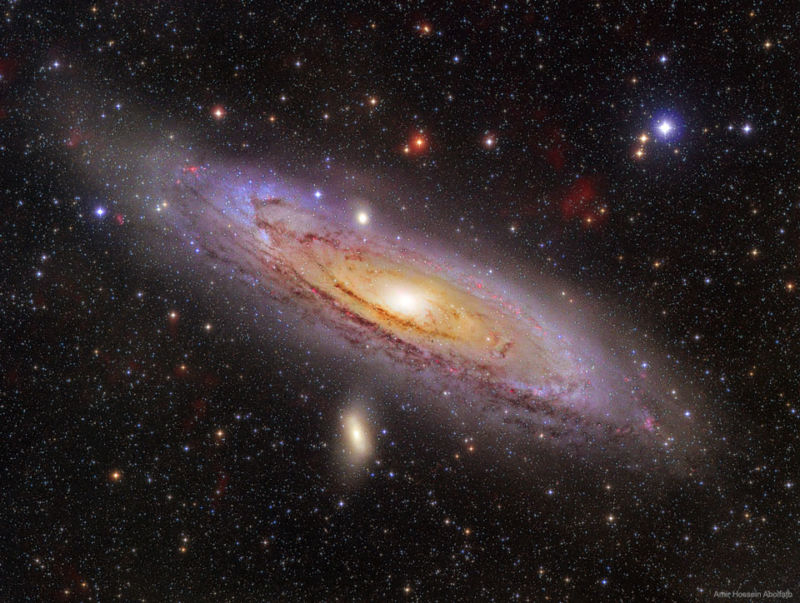
Enlarge (credit: Amir H. Abolfath (TWAN)/NASA APOD)
The large galaxies present in the current Universe weren't always so big. Evidence indicates that they were built up over time, largely by collisions with other galaxies. These collisions have left marks that we can still detect: streams of stars that were drawn in from the victims of the collisions, and faint dwarf galaxies that still orbit the larger object that devoured many of their stars. With enough data, it's possible to become a galactic historian and reconstruct the events that brought the modern-day giants to their present form.
Uncovering some of that history was the goal of a large, multinational collaboration, spelled out clearly in its name: the Pan-Andromeda Archaeological Survey. In a paper published on Wednesday in Nature, the team describes uncovering some of our nearest galactic neighbor's violent past. The paper shows that Andromeda was built in part by two major collisions that have left clusters of stars occupying two perpendicular orbits. In the process of writing their paper, the researchers also uncover a bit of a mystery about an unexpected alignment between some of these clusters and Andromeda's satellite galaxies.
Thinking global
The new work focuses on what are called globular clusters, which are large groups of stars held together by gravity. Unlike other stars—which shift position relative to each other as they orbit a galaxy's center—the stars of a globular cluster stick together and orbit as a group. As a result, these gravitationally bound clusters of stars can survive the collisions between galaxies. That means they can be used as markers to retrace those collisions.
No comments:
Post a Comment